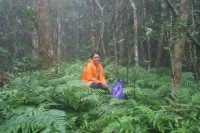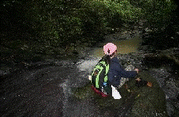
In many places in the world, tourism simply is an industry that sprouted from the need to derive economic benefit through the promotion of an attraction. In most cases, the growth was not based on any plan or clear direction. Tourism just happened to these communities.
Here are a few basic knowledge about tourism:
Unlike most economic activities where resources are harvested, goods and services are manufactured and products are shipped out to consumers, in tourism people flow to the consumable rather than the consumable flowing to them. The destination plus the amenities and services form the tourism product.
Large or small, near or far, willing or unwilling, tourism happens in communities everywhere in the world. It happens whenever an outsider comes to buy gas, shops, eats, spends the night or stays for whatever reason . They come, they stay awhile, they interact with community residents, they look around, check out the attractions, they may or may not spend money, and in the end, they leave having some kind of impression in the minds about the place they just visited.
Tourism is a double-edged sword. It can result to both negative and positive impacts. People tend to look at the economic impact and only discover its negative effects on the culture and environment years later.
Given that tourism happens in communities, the people should then ask themselves if they want tourism to happen to them (and result to uncontrolled development) or for it to happen for them.
In most cases tourism simply happens to a community, and this results to negative impacts that are often irreversible. Uncontrollable development is a result of lack or absence of a plan that provides the proper guidance for development. Places like Boracay, Puerto Galera and Baguio are classic examples of places where tourism simply happened. It may be true that economic benefit are being derived from the tourism industry, but the environmental degradation and cultural erosion cannot be ignored. These represent the price that was paid for tourism development.
If the choice is for tourism to happen for the community, then there is a need to plan. Planning provides a mechanism of control by the stakeholders and the people of the community. It serves as a blueprint for success and is built upon a consensus for a common goal.
Here are a few basic knowledge about tourism:
Unlike most economic activities where resources are harvested, goods and services are manufactured and products are shipped out to consumers, in tourism people flow to the consumable rather than the consumable flowing to them. The destination plus the amenities and services form the tourism product.
Large or small, near or far, willing or unwilling, tourism happens in communities everywhere in the world. It happens whenever an outsider comes to buy gas, shops, eats, spends the night or stays for whatever reason . They come, they stay awhile, they interact with community residents, they look around, check out the attractions, they may or may not spend money, and in the end, they leave having some kind of impression in the minds about the place they just visited.
Tourism is a double-edged sword. It can result to both negative and positive impacts. People tend to look at the economic impact and only discover its negative effects on the culture and environment years later.
Given that tourism happens in communities, the people should then ask themselves if they want tourism to happen to them (and result to uncontrolled development) or for it to happen for them.
In most cases tourism simply happens to a community, and this results to negative impacts that are often irreversible. Uncontrollable development is a result of lack or absence of a plan that provides the proper guidance for development. Places like Boracay, Puerto Galera and Baguio are classic examples of places where tourism simply happened. It may be true that economic benefit are being derived from the tourism industry, but the environmental degradation and cultural erosion cannot be ignored. These represent the price that was paid for tourism development.
If the choice is for tourism to happen for the community, then there is a need to plan. Planning provides a mechanism of control by the stakeholders and the people of the community. It serves as a blueprint for success and is built upon a consensus for a common goal.







No comments:
Post a Comment